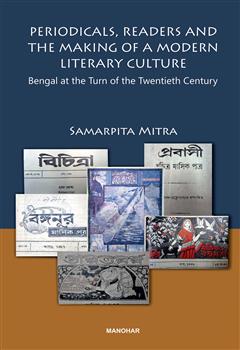Periodicals, Readers and the Making of a Modern Literary Culture: Bengal at the Turn of the Twentieth Century
no information available
In the decades between the 1870s and 1920s literary periodicals (sahitya patrika) much like the newspapers and the books became popular among the middleclass Bengali homes – both as an affordable recreation for leisure hours and as a major vehicle for the circulation of ideas in the public domain. Periodicals Readers and the Making of a Modern Literary Culture: Bengal at the Turn of the Twentieth Century begins by looking at the logistics of the production and circulation of periodicals that were oriented towards a widening readership market. Given their easily understood nature their capacity for sustaining debates and adaptability by readers with diverse reading competencies periodicals became the preferred means for dispensing modern education and enjoyment through the vernacular. The proliferation of periodicals therefore came to be perceived as a mark of a new national life (jati?a jiban) coming into existence. The book moves on to look at some of the defining debates that shaped readers’ perspectives on critical social issues and explains how these were tied up with larger concerns over ethical social life. Finally it looks at the BengaliMuslim and women’s periodicals and their readerships and argues that the presence of multiple literary voices makes it impossible to speak of Bengali literary culture in any singular term. About the Author Samarpita Mitra teaches at the Department of History at Jadavpur University Kolkata.
... Read more Read less










